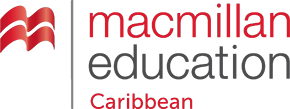Consolidation, catch up and assessment
Parents, children and educators are all worried about the amount of work that our students have missed because of the pandemic. They are trying to plan activities and catch-up opportunities for our children. Parents are now even more aware of the needs of their children as a result of the extensive periods of home schooling.
Homework has become a task with high expectations but we shouldn’t just rush in and fill the gap with any activity that will do as homework. In the past, homework has been used to reinforce the learning that has taken place in school or to consolidate what has been taught. These homework assignments and tasks will not always work in the times we find ourselves in now. This is mainly because first hand learning has not taken place so we cannot reinforce or practice material, content and skills that have been taught in the classroom. The tasks need to be more effective and efficient than they have ever been before. Teachers are under so much pressure to plan first quality lessons to teach efficiently so that students can learn at an increased rate to that in the past. They are also expected to design homework with little reusable resources. Homework should still be meaningful; we cannot expect parents who are back at work to continue to teach children, though their awareness is much greater than it was before. The homework must be manageable for the children, parents and carers and the teachers. It also needs to be personalised with differentiated tasks to challenge and support all learners and still remain interesting and stimulating. How can teachers accomplish all of this?
One suggestion is to use resources that have been developed and are readily available. Project based learning is an efficient tool as students are in control of most of these. They often have opportunities to decide how they will present their projects and the formats they can use. They can collaborate and communicate with other students and can, to a certain extent, work at their own pace. In addition, using and developing research skills and communicating with the people at home can result in students succeeding with less tuition in school. Resources such as workbooks and activities are also useful for setting meaningful and engaging homework tasks - these can often be linked to the objectives that are taught as part of the curriculum. They include extension activities to the learning that has taken place in the lessons and often support activities to allow students an opportunity to review and reflect on the learning that has taken place.
The workbook activities can also be used to efficiently evaluate what students already know. We cannot be certain about what the students have learnt during home schooling. For example, where there are older siblings, students might have encountered content not yet taught in their class. It could be that students have experienced some content sufficiently and do not need to learn it again. When we can identify these areas, we save valuable time by not teaching content repeatedly. The worksheets can also be used to support the students who have not learnt the content at home and need to be taught it in the classroom. Informing planning in this way when trying to catch up is valuable.
To summarise, the workbooks can be used to assess what they already know, what they need to be taught and where they need support, providing first hand, outstanding quality learning that is efficient and effective. This kind of teaching also continues the relationships that have been established with the people at home during home schooling and keeps parents fully informed about the progress the students are making.
Debbie Roberts
